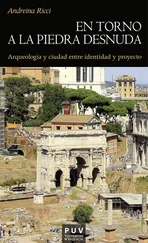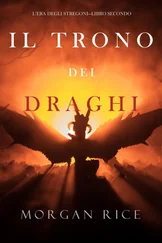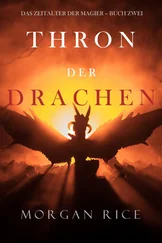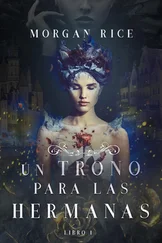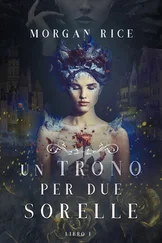One evening in April, the lute-maker came up to my rooms to show me an instrument he had made, the sound of which, he said, was the sound he had heard in his mind all his life but had never achieved until then.
To celebrate this new perfection, he brought with him a flagon of sack and, without noticing what we did, we consumed it all, little by little, so that the hour grew very late and our minds utterly addled and foolish. And in my drunkenness, I told this lute-maker about my dreams of a place that had once been mine and how every night, now, I returned there like a spirit and how I did not believe this dreaming would ever end. He looked at me with his eyes that are nervous and bright like the eyes of a buzzard and said to me: "Why do you not go there, Doctor Merivel? Why do you not see it again and then this seeing of it in your dreams will cease."
The next day, I wrote to Will Gates.
I told him that I had been possessed by a great longing to return to Bidnold, just for a brief time, no more than a day and a night, so that I could remind myself what it looked like and see with my own eyes "certain combinations of colour and light, Will, that I do not think exist anywhere in the world but there." I said I would be content to sleep in one of the servants' rooms, or even in the stables with Danseuse, because all that I wished to do was to visit the place "like someone invisible and not in any way to pretend it is mine or try to possess it again except in my mind."
While I waited for Will's reply, my dreaming of Norfolk was interrupted one night by a dream of Whittlesea and when I woke from it I decided that if indeed I was going to make the journey to Bidnold, I would not return directly to London, but go on to the Fens and tell the Keepers about the death of Katharine and the survival of Margaret and beg of them some other small relic of Pearce to replace the book consumed by the fire. And once I had decided upon this second visit, I no longer thought of this pilgrimage into the past as a foolish and self-indulgent thing. It seemed, on the contrary, to be a journey of the utmost importance: until I had made it, I would not be able to begin upon the future set down in my palm or indeed upon any version of the future whatsoever or come at last to any ending of this story.
I did not have to wait very long for a letter from Will and when it came it woke in me the same mirthful delight I had once felt in a stage coach at Will's first sighting of London.
0, Sir Robert , said the letter, You cannot know how much we are all here every one of us who remember you filled with joy at this Great Coming Event which is your Arrival at Bidnold .
Please, Sir, be assured we will make all very fit and nice for this fortunate Returning, viz- M. Cattlebury will bake a lardy cake and one of his Carbonados and all the Dust Sheets which do cover things since the V. de Confolens comes no more here will be taken off. And do not think you must have any poor bed in a stable. You can sleep in a Comfortable Room, viz- The Olive, where once we tended on Mister Pearce.
Send us merely some word of the day of your Arrival -for reasons of M. Cattlebury's purchasing the beef and seasoning it for the Carbonado. Which word he awaits with great Eagerness, as do I,
your servant Wm. Gates.
The date I decided upon was the twenty-ninth day of April in this year of cold spring rains and fitful sunlight, 1667. Because I wanted to ride to Bidnold on Danseuse, the journey would take me several days, but I knew that I would savour each stage of it, no matter what weather I chanced upon, and that when I found myself at last under the enormous Norfolk sky, I would lift up my head and shout.
It rained on the day that Danseuse and I left London, but after that, as we went north-east, we came upon cloudless days.
As we traveled, I asked myself what changes I expected to find at Bidnold and I knew that what would be most visible to me would be the emptiness of the place, its lack of belonging. The Viscomte, as far as I could determine from Will's letters, had only ever used it as a place of entertainment and seduction. He had never inhabited it fully or bothered to grow fond of it and now he never visited it at all or paid the staff their wages. Will and Cattlebury had remained, paid by Babbacombe I assumed, but I imagined the gardeners and the grooms and the chambermaids and the scullery boys all drifting away, so that little by little the house and the garden and even the park would be falling to neglect and decay. I thought of Will's sadness at this. I saw his brown, creased face. I saw him plead with me to do something to halt the decline of a place that he loved as much as I, and heard myself inform him that I could do nothing at all, it being out of my hands now and quite outside my life.
I did not let these thoughts cast me down. In the whole journey I had hardly a moment of sadness and whenever we stopped for the night I lay long asleep, dreaming myself already there.
So we trot down into Bidnold village, past the Jovial Rushcutters and past the church, and then we make the left turn into the park through the great iron gates and Danseuse flicks her tail and gives a snort and the speed of her trot increases.
There is a fresh breeze and the shadows of fast-moving clouds sail across the grass. The chestnuts are in full candle-burst. A cluster of deer grazes under them and, as we come on, the animals raise their heads and look at us.
We round the curve in the drive and there it is: Bidnold Manor in the County of Norfolk, the house snatched from the Anti-Royalist, John Loseley, and given to me in return for my role as cuckold, the house where all my foolishness was contained, Merivels house.
I rein Danseuse in and slow her to a walk. We are now at the very spot where, one freezing morning, I began to run after Celia's coach and fell down on some ice and tore a pair of peach-coloured stockings. The parkland is moated here and beyond the moat is the south lawn with its great cedar trees and as we walk sedately forward I notice that the lawn is neatly clipped and edged and that round the cedars have been put carved stone benches.
My eye is on the front door now. I remember the heaviness of it and the gladness I always felt when it opened for me and I went in and heard it close at my back – as if I had known all along that the house would belong to me for only the briefest time.
The door opens now. Will Gates comes out and is followed by Cattlebury and the two of them stand side by side and look towards me with dazed expressions on their faces, as if they had been brought forth to witness the passage of Halley's Comet or some such peculiar wonder. This sight of them makes me smile and I call out: "Will! Cattlebury! Here I am!" but my voice does not carry to them for, although I think I am smiling, I am in fact crying like a child and cannot seem to get any hold upon myself to stop my tears which fall so fast and so abundantly that the whole scene before me trembles and moves and it is difficult to keep my balance on my horse.
She halts and I climb down and I see Will and Cattlebury hold out their hands, so I take them in mine, one in each, and hold very tightly to them and force out from my choked heart a burst of my old laughter.
"Sir," says Will, "you are got very thin."
I nod. I am endeavouring to speak.
"We will remedy it, Sir Robert," says Cattlebury, "with carbonados."
"Yes," I say. "We will. With carbonados."
I was mistaken when I imagined neglect and disrepair.
Though empty of any owner, each room at Bidnold appears clean and dusted and perfumed, as if in readiness to receive one.
Little remains of my vulgar decoration. The carpet from Chengchow is still in place upon the Withdrawing Room floor, all its colours cleaned and bright, but the walls are no longer red and gold; they are hung with a dove-grey damask and the scarlet sofas are gone. Yet the room is grander than before. Above the fireplace is a gilded Italian mirror. Every chair and footstool is upholstered in peach silks and Prussian blue velvets. Equestrian portraits (from which Doric columns and Sylvan glades are not entirely absent) grace the walls. There is a card table of maplewood, a chequer table of ebony and ivory, a spinette made by the Frenchman, Florent-Pasquier. At the windows the brocade drapes are heavy and rich.
Читать дальше


